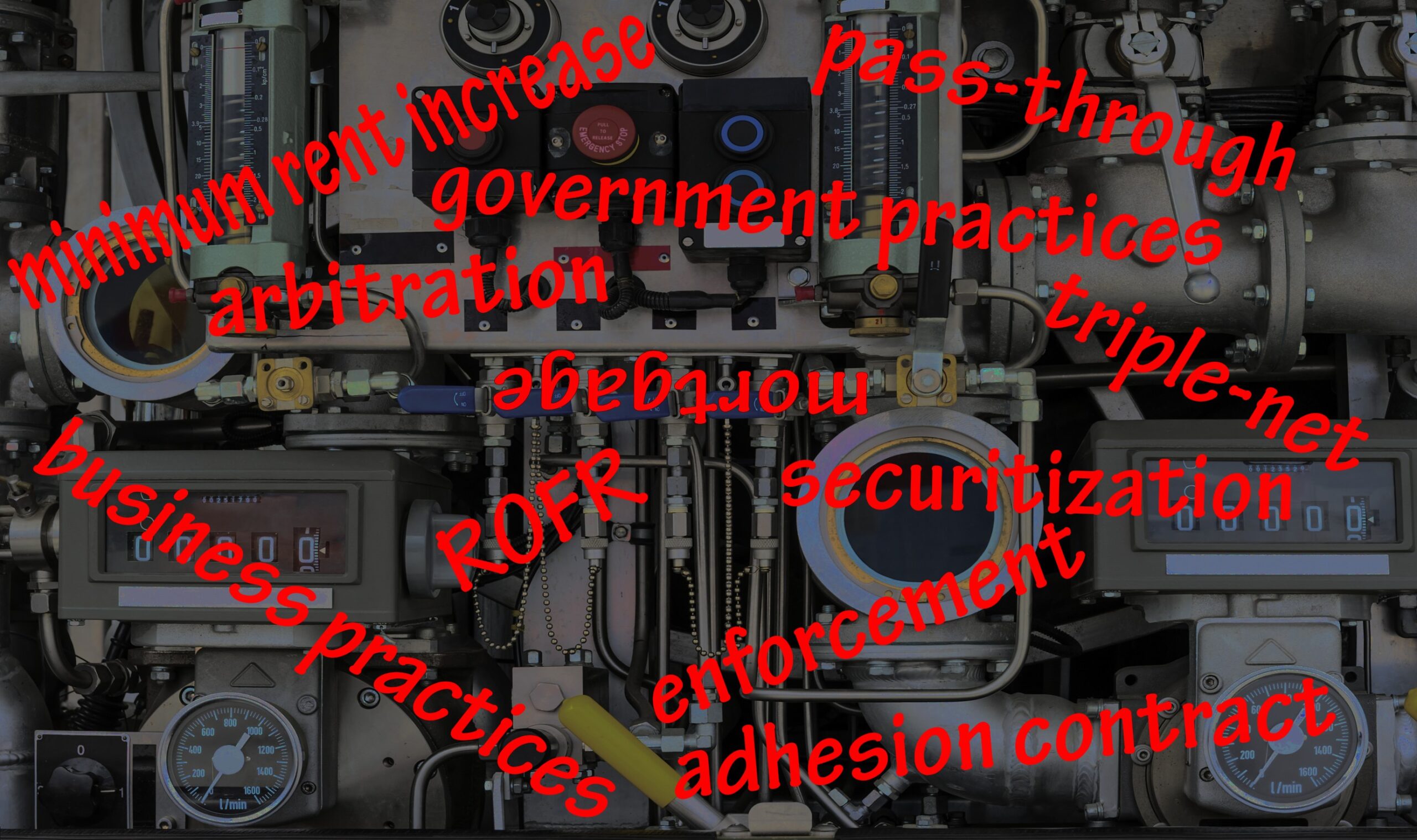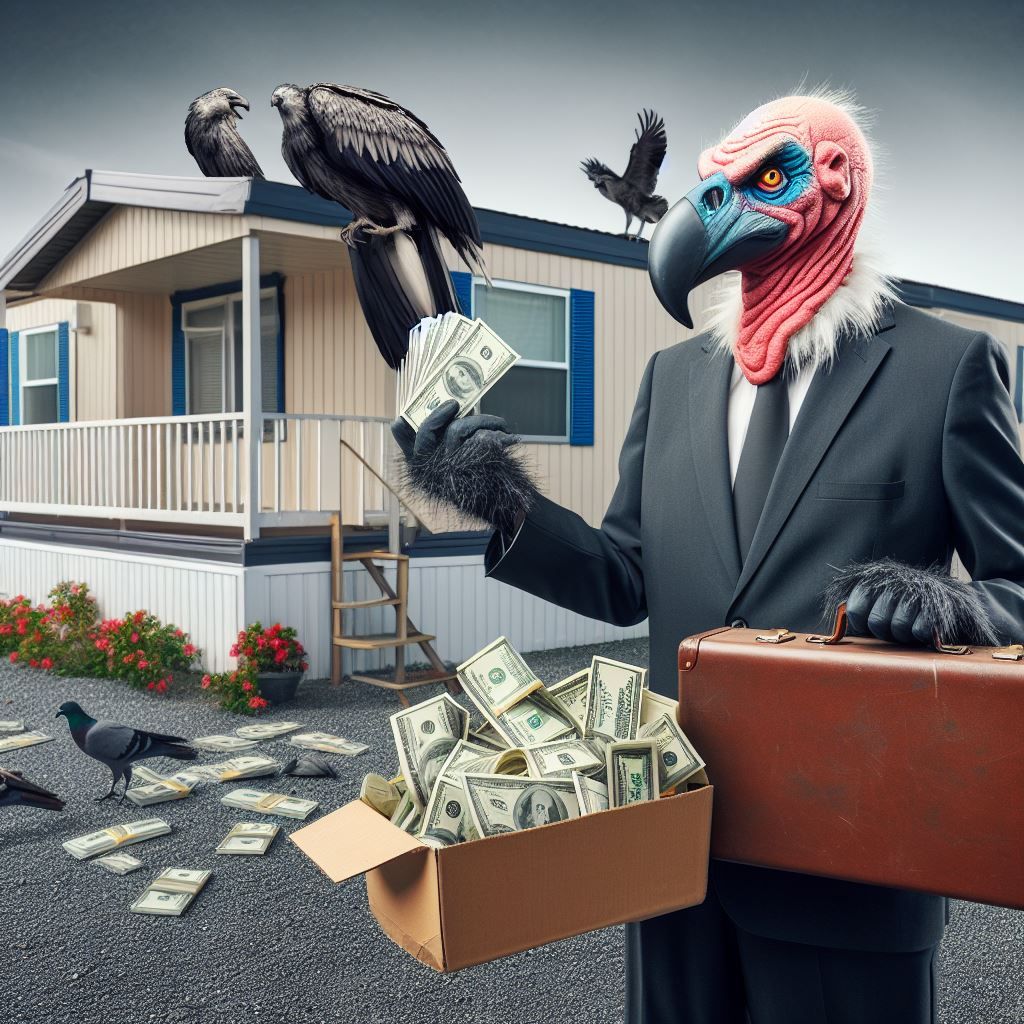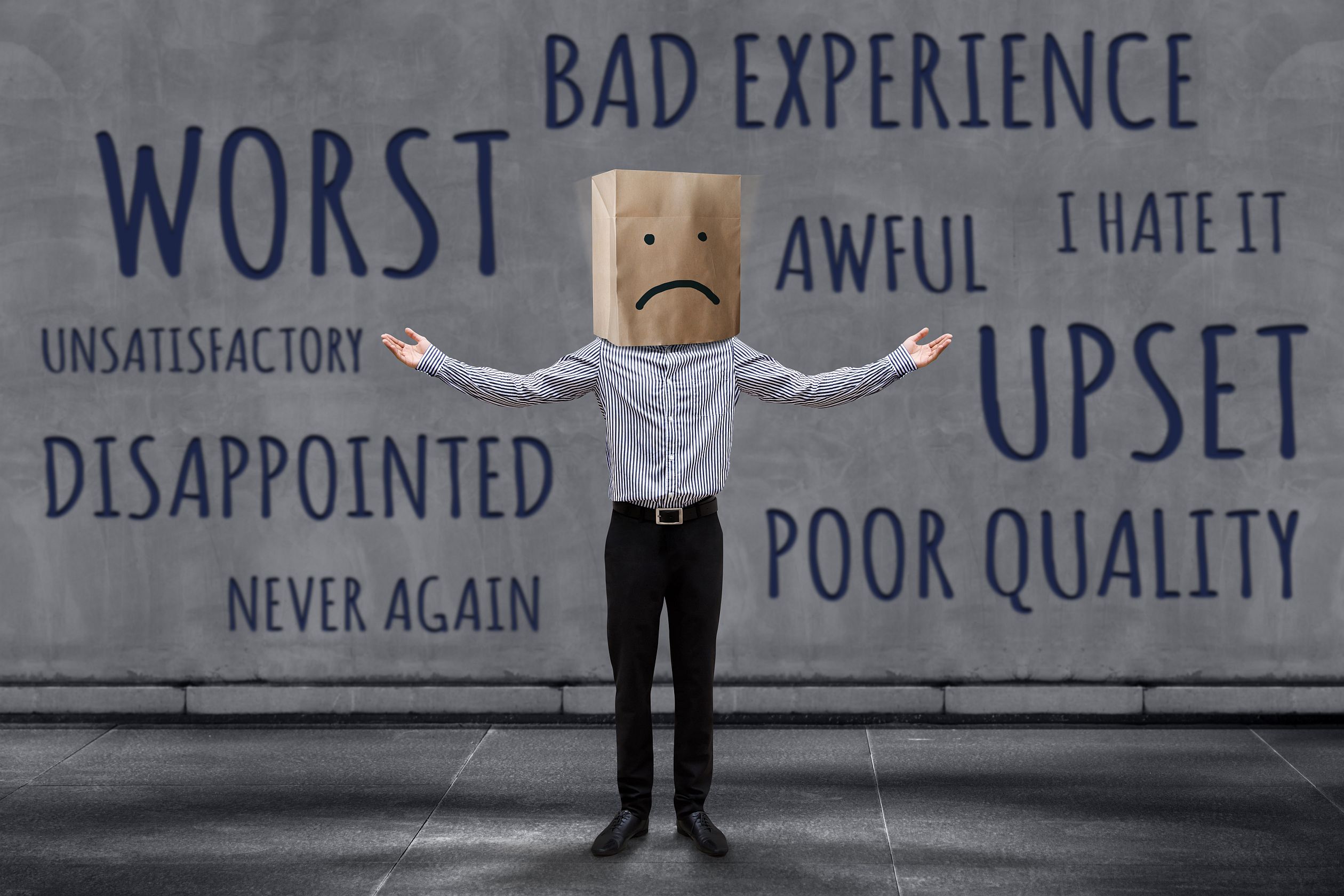The Park Industry – How Your Housing Works
Part 4 of 4

Complicated lease terms homeowners may innocently agree to are explained in the glossary
By:
Links to sections (tap to open)
Financially Trapped Homeowners Push Back
An epic battle is growing where billionaires exploit those seeking affordable housing and the homeowners push back by calling for support from all levels of government and the public. Americans are concerned about the loss of affordable housing. More homeowners and renters are organizing and educating themselves.
More low-income citizens are becoming involved in their government’s housing decisions. They are demanding better management and proposing innovative solutions. As this movement grows, consumers, renters and mobile home owners may join together to secure and enhance this basic human need – for the financial health of the citizenry and the good of the economy.
When Needed the Most, Affordability is Lost
The need for more affordable housing is in the news. Homelessness is on the rise. Yet some park aggregators continue to decrease the affordable housing stock. Mobile home owners are people who work hard to solve their own housing needs by buying a house. While trusting the system to play fair, they may be forced to give up those very homes to escape gouging. Detailed public records are seldom kept, making it harder to predict what will happen next. Some seniors, veterans and lower-paid essential workers may end up homeless, living on the street.
Resident-Owned Parks, a Rare Solution – Can it Compete?
One way to escape the clutches of wealthy profiteers is for residents to attempt to buy their own park, take control of the decision-making and prevent big rent increases. But when a park is up for sale, private equity can outbid the residents, knowing it can recover the higher cost by raising rent, even by gentrifying the park. Once a park has become a piece of a wealthy investment portfolio, the chance of residents ever purchasing it drops dramatically.
– Summary –
Mobile Home Owners Hope for the Best, Prepare for the Worst
In this history narrative, we present some comparisons: Mobile home park versus trailer/RV park, Family-owned park versus corporate-owned park, Good-citizen park owner versus predatory park owner.
Today, mom and pop mobile home parks still exist and it is possible to spend many years in a well-run park managed by good-citizen landlords who make fair profits and treat their customers well. But park residents are cautioned that those equitable conditions could change without warning.
Too often, mobile home owners in the park are surprised to find a letter in their mail telling them the park has a new owner and the old manager and his staff are gone. They discover that a “good” landlord can secretly sell his park business to a large corporation that can jack up rents, exhibit poor customer relationships and cut park staff and maintenance.
Home buyers and mobile home owners should be able to appraise a park and calculate the risks of renting land there. Instead of getting surprised one day, homeowners can work to prepare themselves, their home and their finances for harder financial times. It is important for mobile homeowners to know the various types of parks and how the old and new business models operate.
With knowledge of park operations and the park business, you can focus your scarce finances and energy where it makes the most impact. You can work to educate legislators, city leaders and your neighbors to better secure your financial safety, stability and predictability (send them this web page.)
Your housing security depends on the park and its landlord. The more you know about both, the better off you will be. If nothing shocking ever happens, then congratulations! You will have lived the dream of housing security and predictability that you sought when you committed to buying a mobile home in a park.
But if your park is sold overnight to a predator, your preparation can go into action. Too often stricken homeowners waste months in confusion while trying to understand their situation and decide what to do next. Don’t be one of those. Tell your neighbors, organize your community, educate yourself and others and, together, you can work for better housing security.
Future Trends
Trends show that existing lower-priced conventional housing is becoming less available as large corporations scoop up houses and remove them from the market turning them into rentals. As conventional housing becomes less affordable, more college age citizens and first-time buyers will consider buying a manufactured mobile home. – seeing it as a first step along the path to owning a larger home. They may be hoping to “trade up” someday to a conventional house where they own the land. But manufactured housing tracts are also undergoing dramatic change. Big investors buy entire parks to enjoy the cash flow and their ability to raise land rent prices at their discretion.
More jurisdictions are enacting laws to attempt to preserve this unsubsidized affordable housing stock. Their goal is to prevent forcing out lower-income residents. In some regions, “rent control” laws are for mobile home parks exclusively. Leaders believe that helping essential workers, veterans, retirees and young families is crucial for the economic stability of their jurisdictions. Some observers say the protective coverage is not broad enough – too little, too late.
There should be public transparency, including rental registries and public access to park complaint history. Homeowners should be protected from retaliation and park business practices should be made a matter of public oversight.
In a larger sense, lawmakers, leaders and influencers need to be reminded that manufactured mobile homes in for-profit parks are a unique and complex housing system unlike anything else. That the laws that apply for temporary vagabond vacationers living in in RVs – which are easily movable shelters – are laws that are grossly inadequate for settled citizens living in permanently attached houses in permanent tracts and who, unlike travelers, participate in local civic issues and pay local taxes. Landlords often require homeowners commit to land-lease contracts ranging from 5 to 25 years. Such terms are evidence of the permanency of the residents. Yet they are being forced to live under under vagabond tourist-oriented laws (most mobile home park leases are non-negotiable.)
A new branch of real estate law is needed – one that recognizes that there are two property owners that exist in the same location – both a house owner and a land owner. Each are stakeholders and may have competing interests. The law should recognize that house owners – who may have been encouraged by the industry to buy a house on rented land – also have rights and are not always subservient to land owners. Until such time, mobile home owners will remain vulnerable and need to be vigilant.
Goals of this Site
On this web site, homeowners can share their strategies for preserving a viable source of affordable housing. Further, advocates can work to expand, enhance and promote this housing as a good solution to economic and global problems.
By improving this housing industry, keeping it affordable, much is saved. Future generations can own a roof over their head, be prosperous and contribute to the economy.
Below are some subjects that mobile home owners in parks have encountered. We will delve into these questions in future articles.
Business Practices of Mobile Home Park Owners
- How does the ideal mom-and-pop park compare to the corporate aggregator park?
- Which type of park should I live in? What are the seven major types of mobile home park business?
- How can I judge a park for safety and security? Which parks are safest to buy a home in?
- How much does it really cost to run a manufactured mobile home park? How much of revenue is pure profit?
- What is a mobile home park profit machine?
- Who are the humans profiting from my park? All I have is the name of a corporation.
- How is the government influenced by park owners? How does the government help homeowners? How does the government help aggressive businesses?
- How does the law allow these sudden changes to happen? Why doesn’t someone stop these practices?
- How is an all-rental park operated? Why would a landlord want an all-rental park?
The Effects of Park Business Practices on Mobile Homeowners
- Why is “rent” much lower in a resident-owned park?
- Why is rent much lower in a rent-stabilized park?
- What power does my landlord have to raise rents? What power does my landlord have over my home’s sale price?
- What are the 8 major kinds of park changes that have happened to mobile home owners? What do I gain and what do I lose?
- What happens if the park I live in is converted to another type of park?
- When a park undergoes a major change, what are the signs or symptoms and their causes?
- What is a senior park? How is a senior-only park operated differently? Why would a landlord want to convert a senior park to all-age?
- What is the meaning of these special clauses in my rental agreement? What do they do to my rights?
- How can a landlord make my housing insecure and risky?
- How can a landlord make my housing more secure?
- How do MH owners get trapped with their finances and homes?
- What other businesses support the MH Park industry? How do those businesses affect my security and stability?
- What businesses support the corporate aggregator-owned park business model? What businesses support citizen consumer homeowners?
- How do MH sales agents work in the system? What should I know about salespeople?
- Does the landlord’s sale of park-owned homes compete with my ability to sell my home?
- Why does my park’s manager act the way he does?
- What is home confiscation?
Parks first served travelers with towable trailers. But the fundamentals changed to permanent residents in permanent houses that were too big to move.
Dramatic changes: Trailers become small houses; parks become settled housing tracts; residents become permanent, tax-paying citizens. But the old laws and thinking remain – holding back progress.
The park founders sell to large profit-seeking corporations that dramatically change the quality of life and stability of the manufactured housing tracts.
Homeowners and cities seek good solutions. Manufactured Home Parks provide good solutions—when not held back or exploited





